Our hearts ache with the daily news: shootings; rape; human trafficking; torture; veterans with PTSD, children who are hungry.
Our minds struggle to understand: drones? hundreds of US military bases? millions of refugees? nation building? privatization of water? a war against terror that takes us to Iraq, Afghanistan, and now some say to Iran ?
It is tempting to turn away. And yet, we know that closing our hearts only increases indifference and the acceptance of war and violence as “necessary evils.” If we refuse to open our minds to the complexity of violence, we are complicit with its perpetrators.
Thankfully, we have each other. We lend courage to one another in worship, study and prayer. In person and online, we confront the hard realities and engage the difficult questions.
For more information on Short Takes on Peace, please view this short video by former Unbound editor Patrick Heery.
“Short Takes on Peace” emerged from the Presbyterian Church (USA)’s current peace discernment process. The video clips in each of the seven episodes are excerpts from interviews conducted at a consultation (PDF) for college & university students, faculty and chaplains.
You may want to invite a few others to to engage these issues as a group. See “An Invitation to Peace Discernment.”
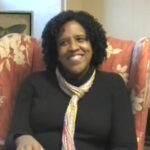 Episode 1:Margaret Aymer and Kate Colussy-Estes Professor Aymer challenges us to take note of the images of violence Jesus employed even as he sought to transform the values and practices of his society. Chaplain Colussy-Estes talks about attitudes and actions of college students related to violence, war, and peacemaking. Episode 1:Margaret Aymer and Kate Colussy-Estes Professor Aymer challenges us to take note of the images of violence Jesus employed even as he sought to transform the values and practices of his society. Chaplain Colussy-Estes talks about attitudes and actions of college students related to violence, war, and peacemaking. |
Episode 2: Andrea Bartoli, Kayla Rice and Rebekah Webster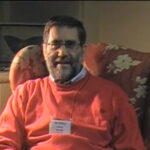 Professor Bartoli combines a vision of Jesus as “de-violencer” with a practical political scientist’s understanding of war. Students Kayla Rice and Rebekah Webster reflect on events on their respective campuses. Professor Bartoli combines a vision of Jesus as “de-violencer” with a practical political scientist’s understanding of war. Students Kayla Rice and Rebekah Webster reflect on events on their respective campuses. |
 Episode 3: Emily Welty, David Smith and Ishmael Dula Professor Welty speaks about the Occupy Movement as a form of nonviolent social change in the US. Students David Smith and Ishmael Dula talk about a generation that is moving beyond past assumptions about differences being divisive. Episode 3: Emily Welty, David Smith and Ishmael Dula Professor Welty speaks about the Occupy Movement as a form of nonviolent social change in the US. Students David Smith and Ishmael Dula talk about a generation that is moving beyond past assumptions about differences being divisive. |
Episode 4: Allan Boesak, Carolyn Gilbert and Jessica Hawkinson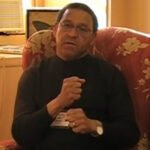 Rev. Boesak discusses the impact that the violence of apartheid had on everybody in South Africa, not only on those most directly involved as perpetrators or victims. Students Carolyn Gilbert and Jessica Hawkinson point to the importance of activism and theological reflection in peacemaking. Rev. Boesak discusses the impact that the violence of apartheid had on everybody in South Africa, not only on those most directly involved as perpetrators or victims. Students Carolyn Gilbert and Jessica Hawkinson point to the importance of activism and theological reflection in peacemaking.
|
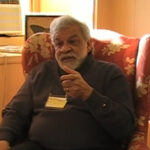 Episode 5: Charles Amjad-Ali, Anne Cerniglia, David Earlywine Professor Amjad-Ali sees nationalism and fundamentalist ideology, rather than authentic religious tradition, as a source of violence and terror. Students Anne Cerniglia and David Earlywine share their thoughts about peacemaking. Episode 5: Charles Amjad-Ali, Anne Cerniglia, David Earlywine Professor Amjad-Ali sees nationalism and fundamentalist ideology, rather than authentic religious tradition, as a source of violence and terror. Students Anne Cerniglia and David Earlywine share their thoughts about peacemaking.
|
Episode 6: Paul K. Chappell,Tommy Ross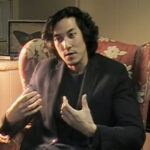 , Olivia Cook Chappell, a West Point graduate and Iraq veteran, now uses his strategic training on nonviolent campaigns. Tommy Ross, military and intelligence advisor to Senate Majority Leader Harry Reid—and excerpt of whose address is provided—thinks overall US policy needs to keep forceful methods in the “toolbox.” , Olivia Cook Chappell, a West Point graduate and Iraq veteran, now uses his strategic training on nonviolent campaigns. Tommy Ross, military and intelligence advisor to Senate Majority Leader Harry Reid—and excerpt of whose address is provided—thinks overall US policy needs to keep forceful methods in the “toolbox.”
|
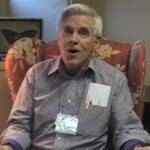 Episode 7:Richard A. Horsley, Linda Morgan-Clement Professor Horsley maintains that Jesus led a reform movement that challenged the Roman empire as well as the Jewish authorities. Chaplain Morgan-Clement discusses strategies for energizing students for peacemaking. Episode 7:Richard A. Horsley, Linda Morgan-Clement Professor Horsley maintains that Jesus led a reform movement that challenged the Roman empire as well as the Jewish authorities. Chaplain Morgan-Clement discusses strategies for energizing students for peacemaking. |








